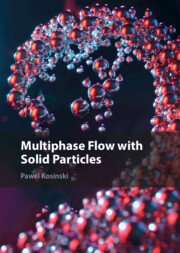Book contents
- Frontmatter
- Contents
- Nomenclature
- 1 Basic Concepts and Scope of the Book
- 2 Flow of a Single Particle
- 3 Introduction to Contact and Impact Mechanics
- 4 Tangential Contact
- 5 Adhesion
- 6 Coefficient of Restitution
- 7 Heat Conduction between Particles
- 8 Hard-Sphere Model
- 9 Discrete Particle Simulations: A Summary of the Model
- 10 Multiphase Systems
- References
- Index
1 - Basic Concepts and Scope of the Book
Published online by Cambridge University Press: 05 October 2023
- Frontmatter
- Contents
- Nomenclature
- 1 Basic Concepts and Scope of the Book
- 2 Flow of a Single Particle
- 3 Introduction to Contact and Impact Mechanics
- 4 Tangential Contact
- 5 Adhesion
- 6 Coefficient of Restitution
- 7 Heat Conduction between Particles
- 8 Hard-Sphere Model
- 9 Discrete Particle Simulations: A Summary of the Model
- 10 Multiphase Systems
- References
- Index
Summary
The first chapter describes the main structure of the book, but also reveals an algorithm that the book is built on. The ultimate goal is the creation of a strategy that can be used for modelling fluid flows laden with particles. Therefore, this chapter depicts the main steps: first, modelling the flow with a single particle, then introducing two particles that may interact, and finally, modelling of the whole set of particles. The details are provided in the subsequent chapters.
Information
- Type
- Chapter
- Information
- Multiphase Flow with Solid Particles , pp. 1 - 5Publisher: Cambridge University PressPrint publication year: 2023
